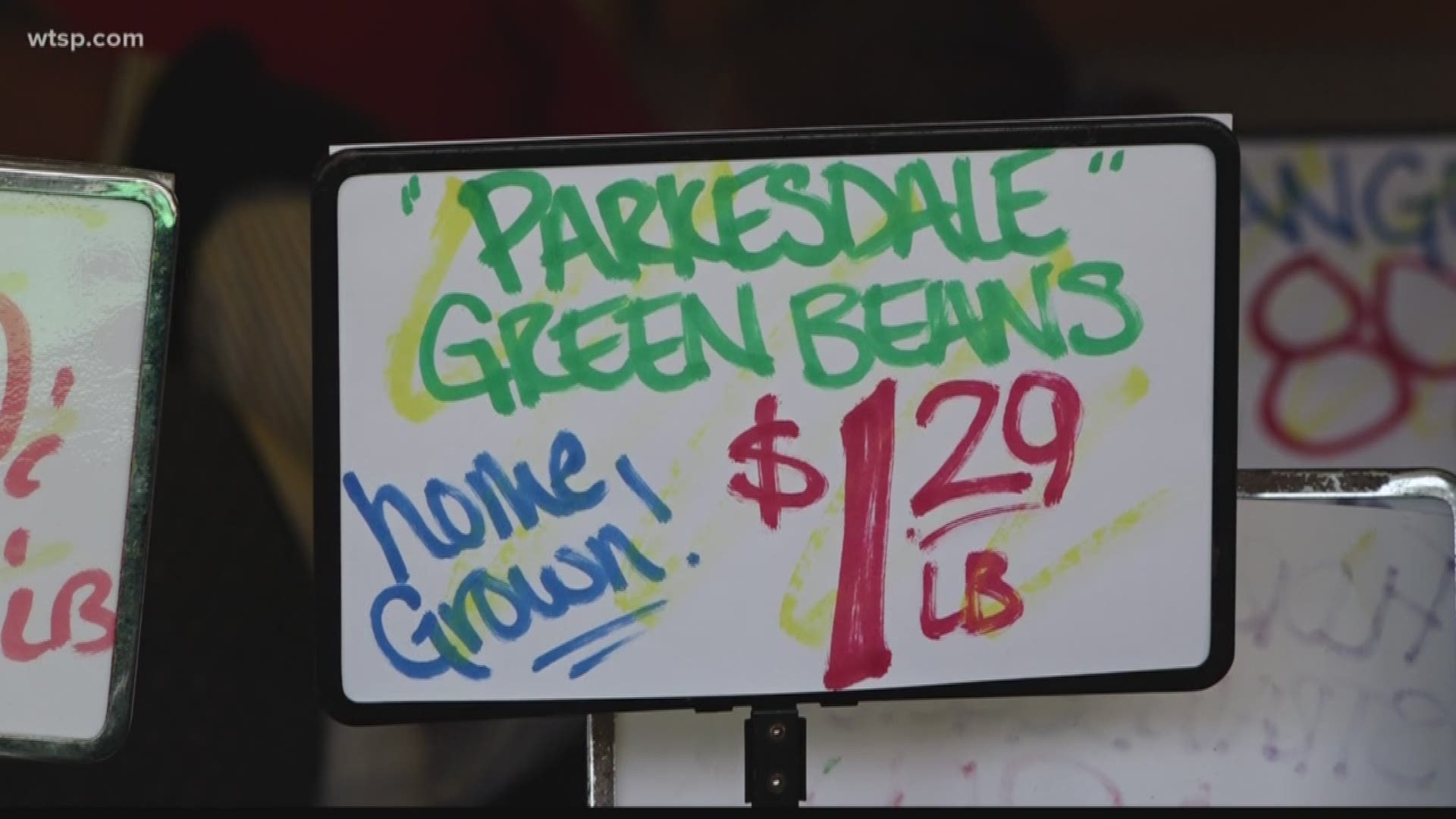PLANT CITY, Fla. — You may have heard the United States is on the verge of a new trade agreement with Mexico and Canada. The deal is likely to be signed by President Donald Trump once it gets through the Senate.
But some Florida produce growers say it’s, in many ways, a rotten deal for them. Despite support from Democrats and Republicans, farmers are feeling left out.
For decades, Florida growers have been suffering from what they say is an uneven playing field.
“It’s a big problem for us,” said Matt Parke, whose family has been operating Parkesdale Farms for generations now.
Park says living with the sting of the North American Free Trade Agreement has been difficult, as they try to compete with cheaper labor and government subsidies south of the border.
He says many Florida growers have gone under since NAFTA went into effect.
“I would have to say there was about 200 growers. Individual growers, 250 growers and now we’re probably down to about 70 or less,” said Parke.
It’s why Parke and other Florida farmers have also taken issue with the new trade deal that’s likely about to take NAFTA’s place.
The US-Mexico-Canada deal might level the playing field for other U.S. industries, but when it comes to Florida’s growers, Parke says it all but ignores them.
“We’re not in it,” he said. “That’s it.”
Farmers had hoped the new trade deal might reverse what’s been a devastating trend.
In the last decade, Florida’s tomato, strawberry and bell pepper crops have all declined sharply, while imports of those same items from Mexico all increased.
A study by the University of Florida estimates more than 15-hundred Florida jobs would be lost if Mexican Agricultural imports increase by another 25%. That figure would surge to eight thousand jobs lost, if that import number increased to 75%.
Of course, if U.S. growers had their way, it might also boost prices, but many consumers say they’d be willing to live with some increases.
“Price is always a consideration, but where it makes sense and it’s reasonable, I would always prefer to support local businesses,” said Barbara Clemons while shopping for produce.
“You’re always better off supporting local people. It’s good for business, it’s good for the environment, good all the way around,” said customer Jim Frazo.
Parke and other Florida growers know they’re facing an uphill climb.
Florida Agriculture Commissioner Nikki Fried has come out against the USMCA deal, but virtually every member of Florida‘s legislative delegation except one – Democrats and Republicans – has said they are likely to support it.
Parke hopes people will reach out to lawmakers before the final votes are cast.
If not for farmers, he says, for themselves.
“When agriculture leaves the United States, we’re going to be dependent upon another country to supply us with our goods,” said Parke.
“And at that point, they have us by the reins. They’re guiding us. We’re no longer in control of our own situation. And that’s the worst thing that can happen to the United States.”
What other people are reading right now:
- Puerto Rico declares state of emergency following deadly earthquakes
- 24 charged with intentionally setting Australia bushfires
- Police: Driver shoots children who threw snowballs at car
- With Pat Sajak out, his daughter fills in on 'Wheel of Fortune'
- Uber to let riders use pin codes to help identify right car
- Report: 32 dead in procession for Iranian general killed in US airstrike
- Invisible aliens may be on Earth right now, astronaut says



